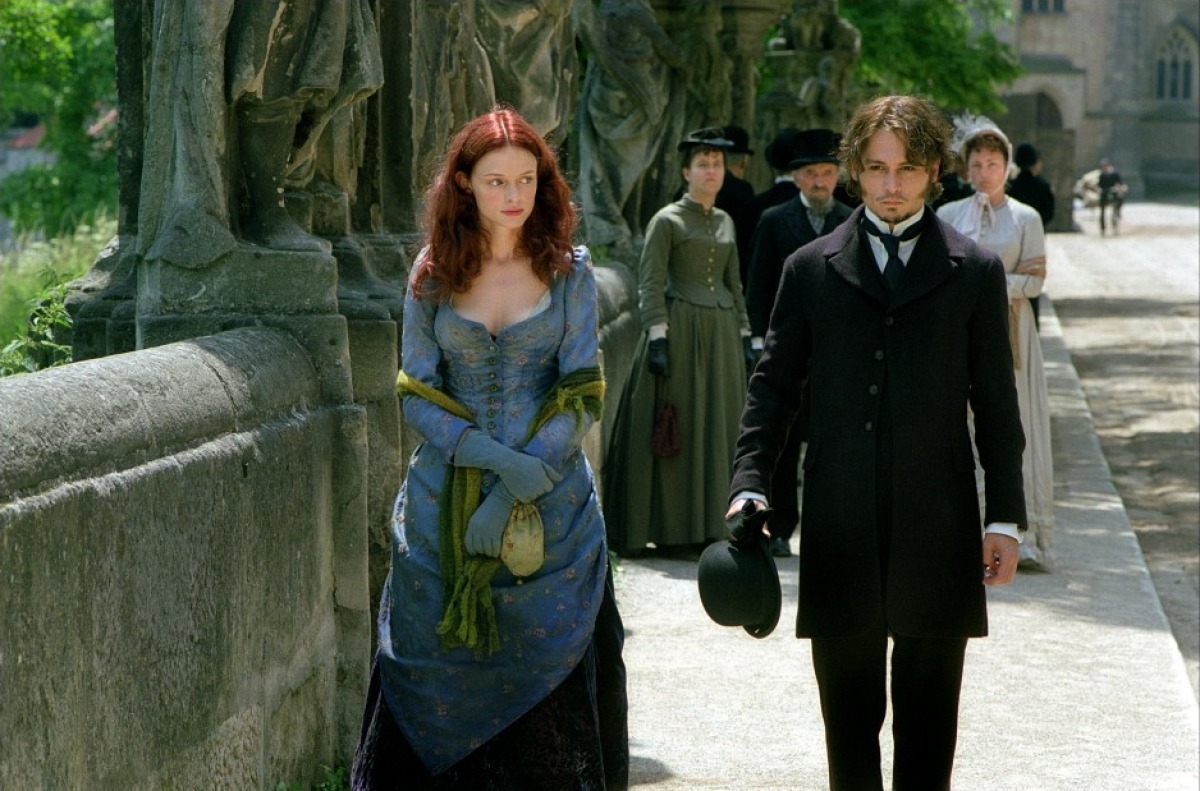From Hell
From Hell, 2001, 2 ¾ stars
Knowing Jack
From The Orlando Weekly, October 22, 2001
A person taking credit for the Jack the Ripper murders signed his letter to the police, “From Hell.” In the film of the same name, the Hughes Brothers (Menace II Society, Dead Presidents) reach into that hell of 1888 London and pull out an eerily horrific, if preposterously inaccurate, tale of prostitution, opium addiction and serial murder.
Based on the 1999 graphic novel by Alan Moore, From Hell takes the real-life characters and facts of the Ripper case and combines them with both legitimate theories of the killer’s identity and blatant falsehoods. The yarns spun by Moore could be forgiven if the movie labeled itself fiction. Instead, it adds fictional details to the actual crimes, therefore giving the impression that the wild accusations of cover-up, leveled at members of the British royal family, among others, are true.
Despite the off-base history lesson, the film is visually and dramatically gripping, thanks to well photographed drug-induced dream sequences and a solid performance by Johnny Depp as the chief inspector on the case, Fred Abberline. Going through a private hell of his own because of his opium addiction and personal demons, Abberline throws himself into both the Ripper case and the arms of prostitute and victim-to-be Mary Kelly (a mediocre Heather Graham). A stronger performance is turned in by Robbie Coltrane, as Abberline’s companion on the case. He’s also his closest mate, literally picking up his friend on several occasions following an episode of “chasing the dragon” with an opium pipe.
Moore’s story addresses only a few key theories of the case, such as the possible involvement of Queen Victoria’s grandson, Prince Albert, and the queen’s personal physician, William Gull, masterfully portrayed by veteran actor Ian Holm (The Madness of King George, Chariots of Fire). The Freemasons are also fingered, and their pentagonal star symbol used as a geographic guide to the five murders. For fans of the famous case, there are plenty of facts thrown in to make it interesting, and the wild conclusion, though parts of it clearly invented for dramatic effect, is fascinating.
For those not interested in the “Whitechapel murderer,” the film does hold some interest, though much of it lies buried beneath Allen and Albert Hughes’ overly stylistic and grotesque depictions of Victorian London. Dramatically slow to begin because of shallow character development, the tale picks up pace as the murders mount. In addition, the terror that not just London but the prostitutes who were being ritualistically slaughtered had to live with is palpable.
The visuals, which detract from the film in the first half because the directors don’t allow enough time for the mood to wash over us, begin to give the story energy as it builds to the surprising climax. They imbue the movie with a true sense of evil that previous Ripper films, such as The Lodger and The Man in the Attic, didn’t have.
The Hughes have created from Moore’s novel a sense of surreal horror, and the film should be appreciated on that level. For all its dramatic and historical mistakes, From Hell rarely fails to entertain and also manages to add to the neverending debate over and fascination with the Ripper.
© 2001 Orlando Weekly / MeierMovies, LLC
For more information on this movie, visit IMDB and Wikipedia.
